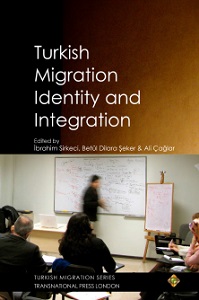From retreating to resisting: How Austrian-Turkish women deal with experiences of racism
From retreating to resisting: How Austrian-Turkish women deal with experiences of racism
Author(s): Katharina Hametner
Subject(s): Gender Studies, Cultural Anthropology / Ethnology, Social differentiation, Migration Studies, Politics and Identity, Identity of Collectives
Published by: Transnational Press London
Keywords: racism; gender; Austrian-Turkish women; experiences; assimilation;
Summary/Abstract: Recent European discourse on integration (e.g. debates about integration tests or national cultural values) focuses more and more on a societal model which understands integration not as societal participation and equality of opportunities (Alexander, 2013; Hess and Moser, 2009; Kaya, 2012) but as cultural assimilation. The markers of difference used in this hegemonial integration discourse work particularly along the axis of cultural difference, a characteristic of a (new) form of racism called “neo-racism” (Balibar, 1991) or “differential racism” (Taguieff, 2000) which focuses on cultural difference instead of biological aspects. Neo-racist arguments are based on the assumption that “cultural groups” are incompatible and xenophobia is a quasinatural attempt to protect one’s “own culture” (Balibar, 1991; Çinar, 1999; Terkessidis, 1998). Thus social categories as culture are naturalized by referring to an underlying essence – a process of psychological essentialism – and “merging different groups” appears as dangerous (Holtz & Wagner, 2009).
Book: Turkish Migration, Identity and Integration
- Page Range: 85-94
- Page Count: 10
- Publication Year: 2015
- Language: English
- Content File-PDF

